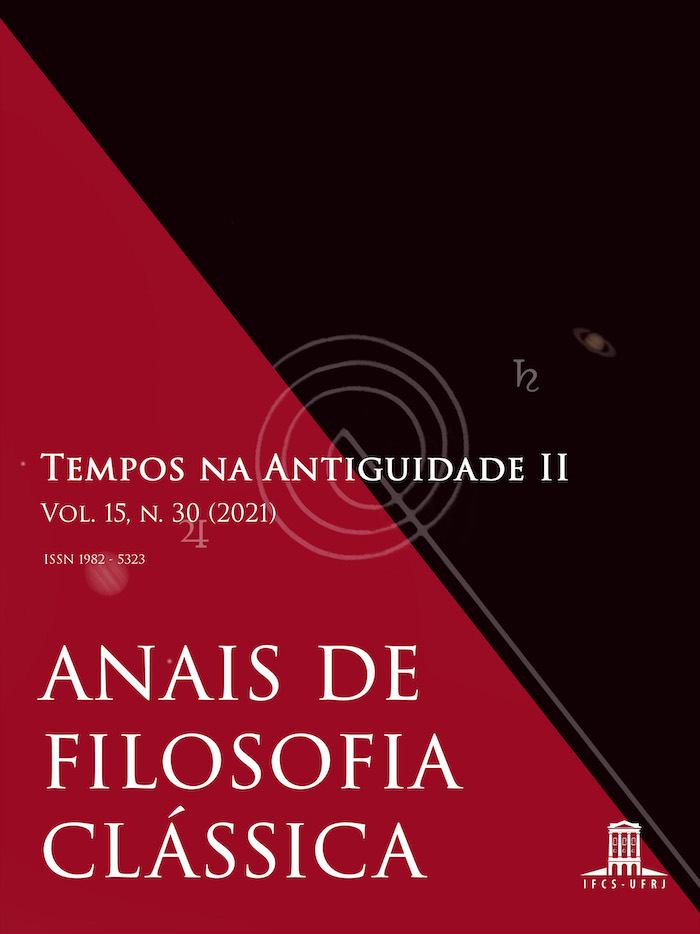Time and Narrative in Augustine’s City of God and Confessions
DOI:
https://doi.org/10.47661/afcl.v15i30.46052Palabras clave:
Agostinho, Tempo, Gênesis, NarrativaResumen
This paper examines the connections between Augustine ́s conception of Time in two of his main works: City of God and Confession. The issue of Time is crucial for Augustine ́s narrative purposes, and it appears in his account of the history of mankind – the City of God, just as it appears in his account of his own history – the Confessions. Book XI in both works discuss time and creation, and put the narrative
of the book in the context of time as a whole. The two accounts proceed from similar motivations and in a similar method. But they at the same time complete each
other: the account of the Confessions is more detailed in the way it presents the problem and works out the solution step by step; the City of God seems to pick it up
from where Confessions leaves off and takes it a step further. In this paper, I first briefly sketch the concept of time as presented in Confessions XI. I continue by
pointing out how it is completed in the account in City of God I conclude by indicating how these two accounts together put into perspective Augustine’s concern with narrative, as well as his use of it.
Citas
AUGUSTINE. Confessions. Translated by Henry Chadwick. Oxford: Oxford University Press, 1991.
AUGUSTINE. City of God. Translated byHenry Bettenson. London: Penguin Classics, 2003.


